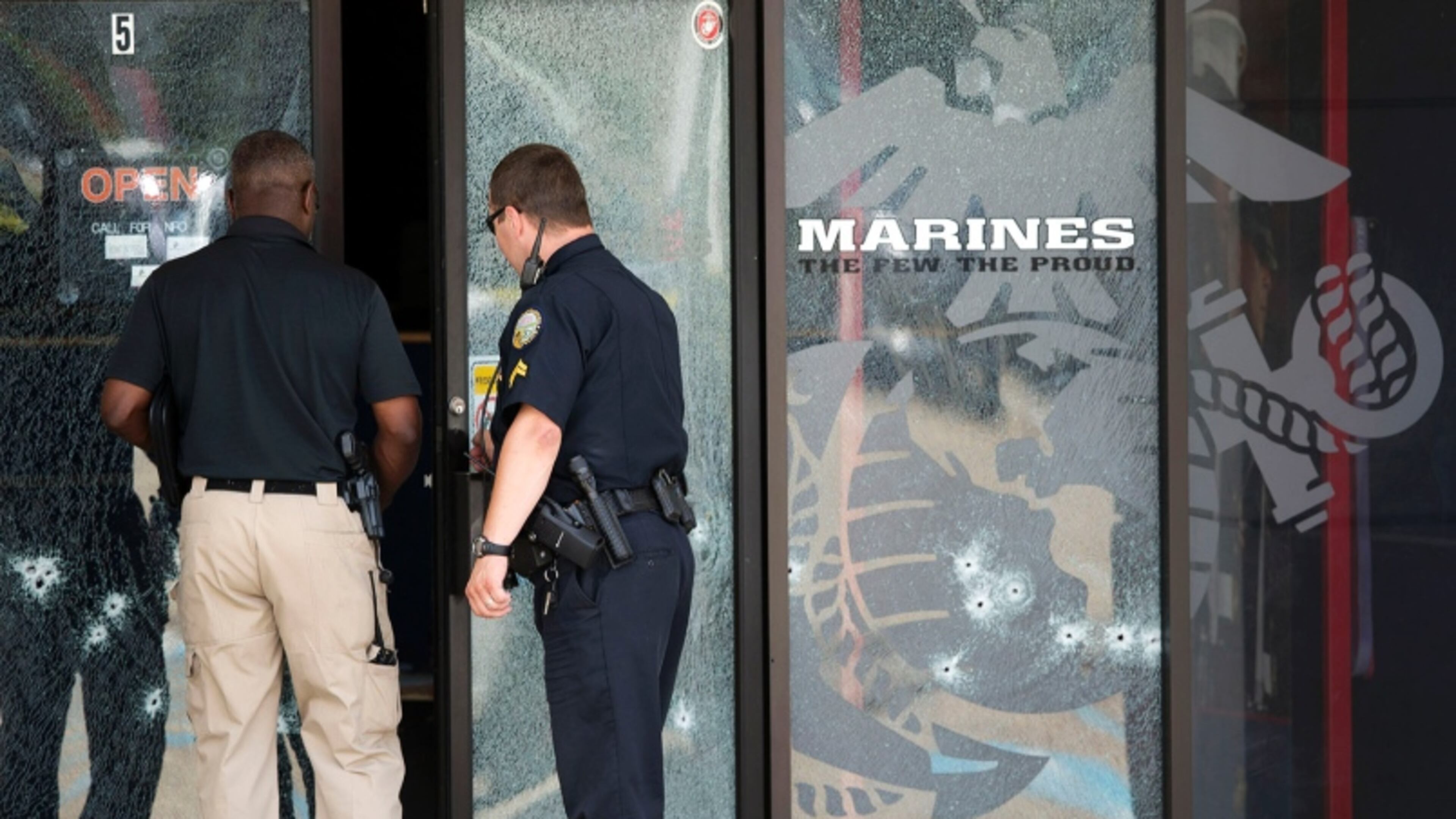Four dead in Chattanooga, and old questions return

Almost one month to the day from Dylann Roof's killing spree, within hours of a Colorado jury returning guilty verdicts against James Holmes for killing 12 in a movie theater, another angry young man turned to mass, mindless violence, this time murdering four Marine recruiters in cold blood in Chattanooga before being shot and killed himself.
The names of the dead have not yet been made public. Once they are, they will be listed here.
UPDATE: The four Marine casualties have been identified as Lance Cpl. "Skip" Wells, from here in Marietta; Gunnery Sgt. Thomas Sullivan of Springfield, Mass.; Staff Sgt. David A. Wyatt of Burke, N.C., and Sgt. Carson A. Holmquist of Polk, Wisc.
UPDATE II: Navy Petty Officer 2nd Class Randall Smith, seriously wounded in the attack, died overnight and became the fifth victim of the attack.
And in that interregnum after the carnage had ended, but before the shooter had been identified, a familiar dynamic played out: Toward whom would the angry eyes turn? Black Americans were hoping the gunman wouldn't turn out to be black; Muslim-Americans were praying that he wasn't Muslim; white militia groups were hoping that one of their own hadn't taken things too seriously. Then the answer: The gunman was Mohammod Youssuf Abdulazeez, a 24-year-old naturalized citizen from Kuwait.
Next came the string of all-too familiar questions that we now ask and answer by rote: Where had his life begun to go astray? What twisted motivation inspired such a twisted action? Where did he acquire the weapons? Search his computer; interview his family, review his records, get the answers. But those answers aren't the real answers, because those also aren't the real questions.
In the case of Abdulazeez, a malformed religious fanaticism appears to have played the role that white supremacy played in Roof's case, that mental illness played for Holmes. Authorities are investigating whether he was a lone wolf acting out of sympathy for radical Islamic terrorists overseas, or whether the connection was direct and operational.
A direct connection would in many ways be less chilling, suggesting at least the hope and opportunity that potential killers in the future can be identified and tracked. The more likely answer is that no such direct connection exists, that Abdulazeez, like Roof, had been a silent consumer of extremist ideology until he chose for reasons of his own to act. A life looking for a cause, even if evil, to justify itself.
That kind of mass killer is almost impossible to predict, to stop, because the things that we would need to know occur in a place that we cannot penetrate. "The mind of man is capable of anything,” as Joseph Conrad wrote, and we live in an era in which violence once conceived is distressingly easy to turn into reality. The distance between thought and deed has been obliterated, and anger is in the air.


